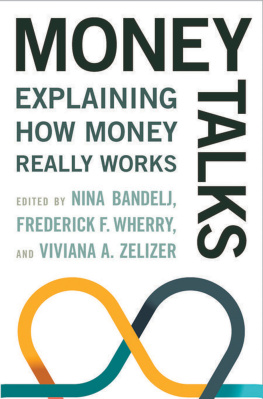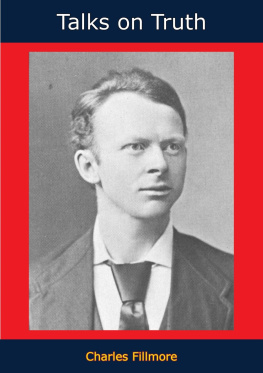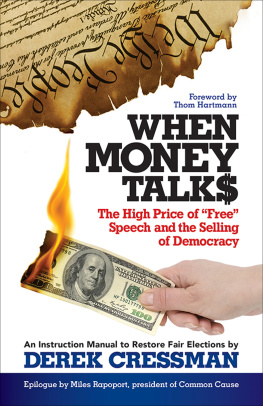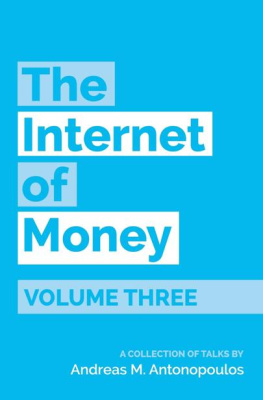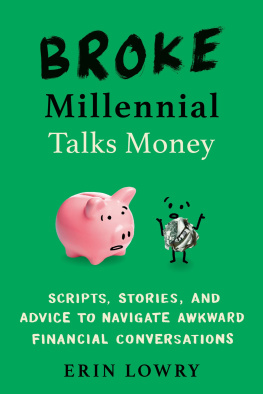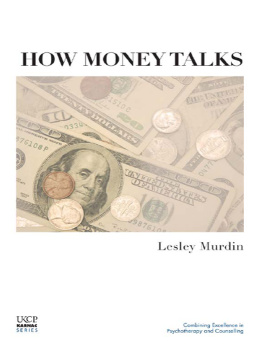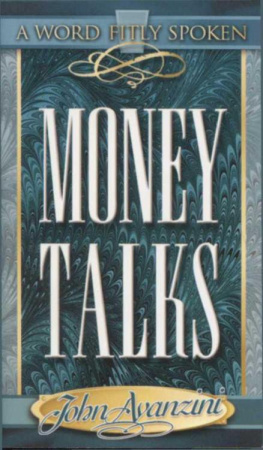Bandelj - Money Talks
Here you can read online Bandelj - Money Talks full text of the book (entire story) in english for free. Download pdf and epub, get meaning, cover and reviews about this ebook. year: 2017, publisher: Princeton University Press, genre: Politics. Description of the work, (preface) as well as reviews are available. Best literature library LitArk.com created for fans of good reading and offers a wide selection of genres:
Romance novel
Science fiction
Adventure
Detective
Science
History
Home and family
Prose
Art
Politics
Computer
Non-fiction
Religion
Business
Children
Humor
Choose a favorite category and find really read worthwhile books. Enjoy immersion in the world of imagination, feel the emotions of the characters or learn something new for yourself, make an fascinating discovery.
- Book:Money Talks
- Author:
- Publisher:Princeton University Press
- Genre:
- Year:2017
- Rating:4 / 5
- Favourites:Add to favourites
- Your mark:
- 80
- 1
- 2
- 3
- 4
- 5
Money Talks: summary, description and annotation
We offer to read an annotation, description, summary or preface (depends on what the author of the book "Money Talks" wrote himself). If you haven't found the necessary information about the book — write in the comments, we will try to find it.
Money Talks — read online for free the complete book (whole text) full work
Below is the text of the book, divided by pages. System saving the place of the last page read, allows you to conveniently read the book "Money Talks" online for free, without having to search again every time where you left off. Put a bookmark, and you can go to the page where you finished reading at any time.
Font size:
Interval:
Bookmark:

MONEY TALKS
Money Talks
EXPLAINING HOW MONEY REALLY WORKS

Edited by Nina Bandelj,
Frederick F. Wherry & Viviana A. Zelizer
PRINCETON UNIVERSITY PRESS
PRINCETON & OXFORD
Copyright 2017 by Princeton University Press
Published by Princeton University Press,
41 William Street, Princeton, New Jersey 08540
In the United Kingdom: Princeton University Press,
6 Oxford Street, Woodstock, Oxfordshire OX20 1TR
press.princeton.edu
Jacket image courtesy of iStock
All Rights Reserved
ISBN 978-0-691-16868-5
Library of Congress Control Number: 2017931724
British Library Cataloging-in-Publication Data is available
This book has been composed in Miller
Printed on acid-free paper.
Printed in the United States of America
10 9 8 7 6 5 4 3 2 1
To the Princeton University Sociology Department,
where it all started
CONTENTS
Nina Bandelj, Frederick F. Wherry, and Viviana A. Zelizer |
Jonathan Morduch |
Nina Bandelj, Tyler Boston, Julia Elyachar, Julie Kim, Michael McBride, Zaibu Tufail, and James Owen Weatherall |
Frederick F. Wherry |
Bruce G. Carruthers |
Simone Polillo |
Christine Desan |
David Singh Grewal |
Eric Helleiner |
Arlie Hochschild |
Rene Almeling |
Supriya Singh |
Alya Guseva and Akos Rona-Tas |
Bill Maurer |
Nigel Dodd |
PREFACE
ON SEPTEMBER 12, 2014, a group of scholars came together at the Yale Law School, the School of Management, and the Center for Cultural Sociology for the Money Talks Symposium, which we organized to celebrate the twentieth anniversary of the publication of The Social Meaning of Money (1994) by Viviana Zelizer. Daniel Markovits at the Law School proved to be an excellent co-convener. Participants included legal scholars, behavioral economists, economic anthropologists, social psychologists, political scientists, and economic and cultural sociologists, as well as historians who had developed or extended different aspects of Zelizers landmark book. They ranged from established leaders in their fields to some of the most innovative younger scholars working on money. They all welcomed this pioneering effort to engage in sustained dialogue across our disciplinary boundaries. None had previously encountered collaborative sites such as the one afforded by the symposium. All became fully engaged in discussions about different approaches to exploring moneys new forms and about policy-sensitive issues such as those involving low-income household finances as well as considerations of moneys moral impact.
We were deeply inspired by conversations that flourished at the Money Talks Symposium and left the conference with a firm belief that a broader audience should have an opportunity to benefit from these conversations. With this purpose in mind, fourteen essays were further developed specifically for this volume. In this process, it became inevitable to recruit Viviana Zelizer as our coeditor. While her book provided the impetus for the conference, let us note that the book that has emerged from that meeting is not a festschrift to Zelizer, as the chapters develop new approaches to our understandings of money, and aside from Bandelj and Wherry, none of the contributors are Zelizers former students or close collaborators. Moreover, we also found out about a meaningful conversation between Zelizer and her cherished collaborator and friend, Charles Tilly. A decade ago they had discussed editing a volume of the kind that we have now assembled. Building on Zelizers The Social Meaning of Money, their envisioned volume would, in fact, include some of the same authors that are now part of this project and would forge an interdisciplinary conversation.
Then, the idea for the Zelizer and Tilly volume was filed into a manila folder, reopened by Zelizer a decade later. The time for collaboration had come. The volume before you fulfills that early Zelizer/Tilly vision about money talking across disciplinary domains, which continues to brim with relevance today, as we expect it will for decades to come.
Nina Bandelj
Frederick F. Wherry
Irvine, California and New Haven, Connecticut, July 2016
ACKNOWLEDGMENTS
DESPITE GEORG SIMMELS FAMOUS WARNING about some of the risks involved in triads, our editorial trio worked together with exceptional harmony. The making of Money Talks became an energizing joint adventure. We were not alone. We were fortunate to receive support from numerous institutions and colleagues.
We were able to convene the volumes contributors at Yale University thanks to the generosity of a number of offices and colleagues. At Yale we thank the Office of the Provost, the Center for Cultural Sociology, the Yale Law School, the Yale School of Management, the Center for Comparative Research, and the Sociology Department. At the University of California at Irvine we thank the Center for Organizational Research, the Sociology Department, and the Office of the Dean of Social Sciences. Viviana is grateful to Princeton University and the Russell Sage Foundation for providing precious sabbatical support at RSFs stimulating and congenial community. Special thanks go to Miguel Centeno, chair of Princetons Department of Sociology. Nina gratefully acknowledges support from the National Science Foundation Grant no. 1328172.
A number of colleagues offered suggestions, advice, and encouragement, including Daniel Markovits (who co-hosted our symposium at Yale Law), Jeffrey Alexander, Richard Breen, Julia Adams, Frances McCall Rosenbluth, Andrew Metrick, Olav Sorenson, and Alice Goffman. Our introductory chapter benefited from valuable comments from Rene Almeling, Christine Desan, and Eldar Shafir. We are also grateful to Nancy Folbre, Marion Fourcade, Shane Frederick, Kieran Healy, Akinobu Kuroda, Daniel Markovits, and Stephen Vaisey, who presented papers at the 2014 conference. Heba Gowayed and Nicholas Occhiutto served as the symposiums scribes and its promoters, writing up a report for the American Sociological Associations Economic Sociology Section newsletter, Accounts. Nadine Amalfi coordinated us all with great care and with assistance from Carolyn Ly, Till Hilmar, and Shai Dromi. At Yale, Pam Colesworthy handled other troubles before they could become a bother. Yader Lanuza ably assisted with the references, as did Ashley Fournier with the copyright permissions.
The sustained efforts and warm collegiality of our contributors made this book possible. We hit the jackpot with a set of brilliant colleagues that met every deadline and responded to each of our suggestions.
We could not find a better home for our book than Princeton University Press. Under the stewardship of its director, Peter Dougherty, PUP is an authors dreamworld. From day one, Meagan Levinsons enthusiastic and skillful editorial support helped guide our efforts. We greatly benefited from her advice as well as comments from three demanding but constructive anonymous reviewers. Our good fortune extended to the superb production team led by Kathleen Cioffi, with Samantha Naders assistance, as well as Beth Gianfagnas gifted copyediting and Jim Curtiss indexing prowess.
Our families endured our distraction, our enthusiastic late night notes back and forth, and our solitary retreats to think things through. Ninas mother, Olga, a masterful practitioner of relational work, heard about the very beginnings of this amazing venture and would have been the loudest one to celebrate its culmination.
Next pageFont size:
Interval:
Bookmark:
Similar books «Money Talks»
Look at similar books to Money Talks. We have selected literature similar in name and meaning in the hope of providing readers with more options to find new, interesting, not yet read works.
Discussion, reviews of the book Money Talks and just readers' own opinions. Leave your comments, write what you think about the work, its meaning or the main characters. Specify what exactly you liked and what you didn't like, and why you think so.

